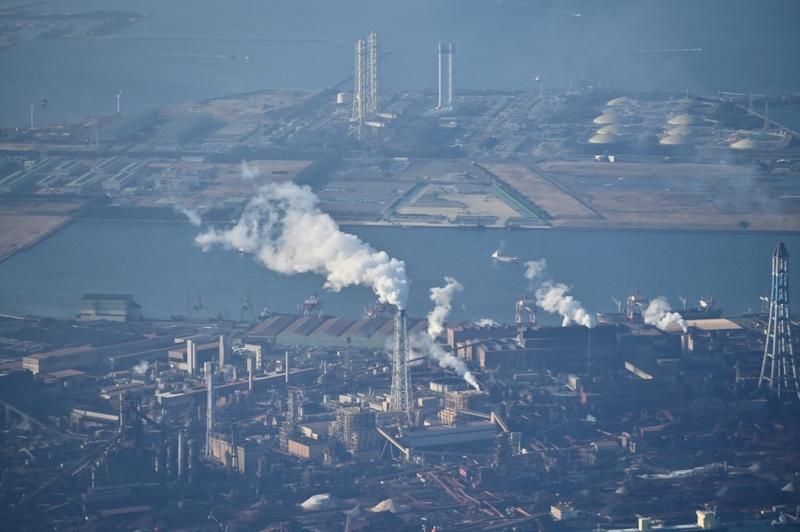 An aerial photograph shows emissions from industrial plants in Yokohama on Dec 16, 2019. (CHARLY TRIBALLEAU / AFP)
An aerial photograph shows emissions from industrial plants in Yokohama on Dec 16, 2019. (CHARLY TRIBALLEAU / AFP)
TOKYO - Japan is looking to raise its 2030 greenhouse gas emissions-reduction target to at least a 40 percent cut on fiscal 2013 levels from 26 percent now, Kyodo news agency said on Wednesday, citing sources close to the matter.
Prime Minister Yoshihide Suga has set a goal of making Japan carbon neutral by 2050, and the government aims to finalize the 2030 target by the G7 summit in June, Kyodo said, adding that some compromises will have to be made as there are differing views among its ministries.
While the Japanese environment ministry is proposing an ambitious target of reducing emissions by 45 percent, the industry ministry is pushing for a more conservative 35 percent, said Kyodo news agency
Suga will meet with US President Joe Biden in Washington on April 16, before attending a virtual summit of 40 leaders on climate change on April 22-23.
ALSO READ: Japan plans carbon emission cuts, more nuclear energy
Biden had called for the summit and his administration is expected to announce what the White House called “an ambitious 2030 target” for reducing carbon emissions by the time it convenes.
The EU has raised its 2030 emission-reduction target to at least 55 percent from 40 percent on 1990 levels, while Britain has said it would lift its 2030 goal to at least 68 percent from 57 percent.
While the Japanese environment ministry is proposing an ambitious target of reducing emissions by 45 percent, the industry ministry is pushing for a more conservative 35 percent, Kyodo said.
Japan had previously planned to finalize its new 2030 target by the United Nations’ Climate Change Conference, known as COP26, in November, but Suga decided to bring it forward based on developments in the international community, Kyodo said.
READ MORE: Japan's green future requires returning to its nuclear past
Last October, Suga declared an ambitious target of becoming a carbon-neutral society by 2050, as Japan made a major shift in its position on climate change.



